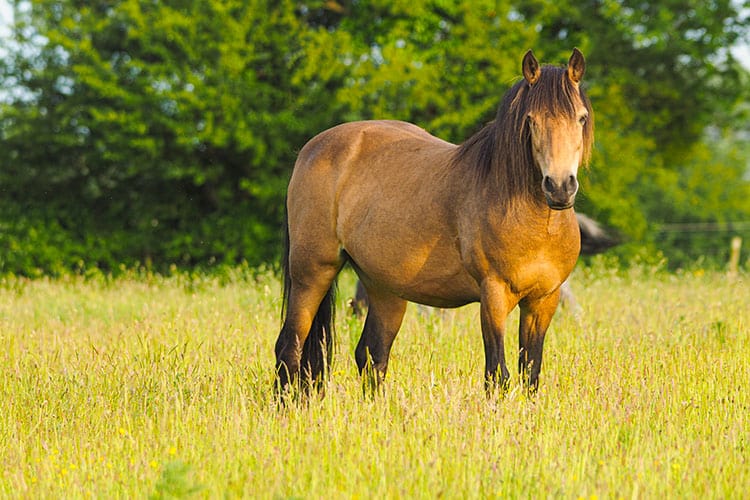
Evaluating Horse Diets: What to Know
Nutritional evaluations take the guesswork out of whether your horse is consuming a balanced diet.

Nutritional evaluations take the guesswork out of whether your horse is consuming a balanced diet.

Learn what nutrients are in your senior horse’s feed and why his body needs them.

Learn how to store hay and grain properly—keeping nutrients in and mold, rodents, and spoilage out.

While steeped in tradition, feeding bran mashes can cause GI distress in horses. Learn why, and discover alternatives.

Your horse’s nutritional requirements depend on his life stage and individual needs.

Learn how to tailor your mare and foal’s feeding program from late pregnancy to weaning with expert guidance.

An equine nutritionist explains why you should consider your individual horse’s needs and forage source before choosing a ration balancer.

Not all carbohydrates are created equal, and “low-carb” definitely doesn’t mean “no-carb.” A nutritionist explains.

A nutrition expert offers advice on preventing weight gain and boredom while a hefty horse is on stall rest.

Should you adjust your horse’s diet if he will have time off during winter? What changes are safe to make? An equine nutritionist explains.

Researchers believe exercise, stress, and diet can contribute to leaky gut in horses, but a prebiotic product might reduce the incidence.

Extruded horse feeds offer higher digestibility, longer consumption time, and decreased dust and pathogens, making them an ideal option for feeding some types of horses.

When your older horse’s pearly whites are past their prime, keep an eye out for signs of specific problems.

Here are some tips for promoting nonworking horses’ optimal health (and preventing potential problems) with nutrition.

Proper storage techniques help prevent spoilage, preserve nutrients, avoid mold, and protect against pests, helping your horse’s health and maximizing your investment.

Does your otherwise healthy horse have trouble keeping pounds on? Here are 5 tips to consider when feeding the mature, healthy hard keeper.
Stay on top of the most recent Horse Health news with
"*" indicates required fields